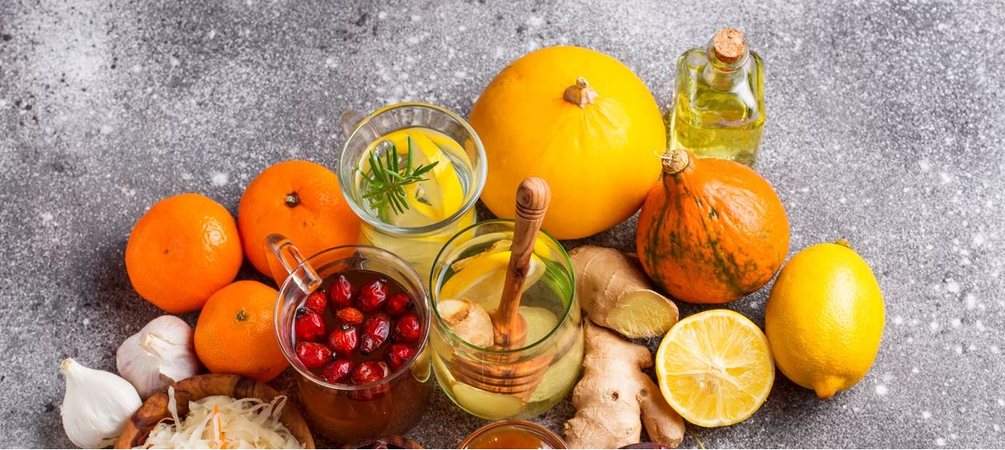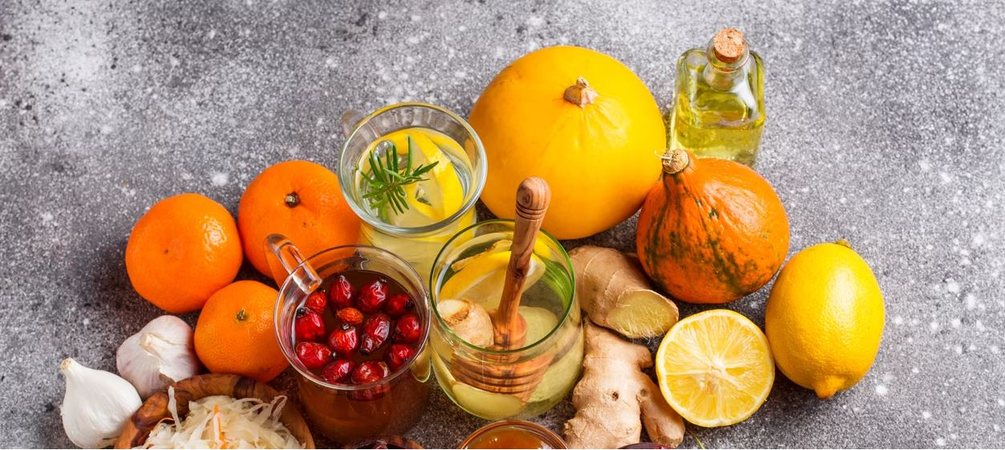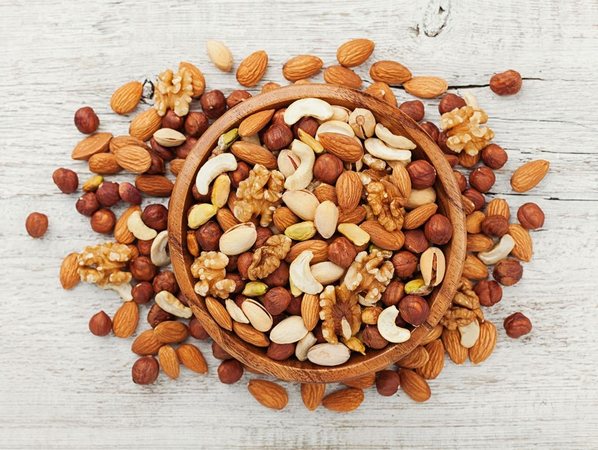
Fatigue, irritability, exhaustion, sleepiness and a general feeling of sickness are common symptoms that accompany us from autumn to winter. Thanks to the drop in temperatures, we are often more vulnerable to flu and respiratory illnesses. But what should you do not to catch a cold? Dietitians advise taking the right foods for the functioning of the immune system to face the winter.
"In addition to superfoods, it is important to get fiber, through regular consumption of legumes, grains, fruits and vegetables, to feed the "friendly" microflora of the intestines, capable of metabolizing them with the production of fatty acids, which positively affect inflammation levels and our immune system. This will allow us to face the winter season with greater calm", says Italian dietician Daniele Basta.
Eat fruits and vegetables
Foods rich in vitamins, mineral salts and antioxidants such as fruits and vegetables help the proper functioning of our immune defense, their presence in our diet is essential.
Do not forget vitamin A contained in pumpkin and carrots and vitamin C present in large quantities, as well as in fruits and citrus fruits, also in cabbage, cauliflower, broccoli and seasonal vegetables.
Pay attention to vitamin C which is lost during cooking, red cabbage or pickled fruits, fresh or dried naturally, are better.
Do physical activity
When the cold weather comes, we would like to stay inside and rest, but it is important to continue to stay fit regularly through physical activity of preferably moderate rather than high intensity.
To help us recover after exercise, fruit should never be missing, accompanied by a good source of protein such as natural Greek yogurt with a good mix of dried fruits, a healthy concentrate of goodness: almonds, pistachios, hazelnuts and pine nuts, preferably from organic farming and not roasted or salted.

Try to sleep well
With the arrival of the winter season, we tend to sleep more, but what makes the difference, as well as the quantity, is the quality of rest. For restful sleep, foods rich in magnesium are excellent and should be taken a few hours before going to bed to promote relaxation. Pumpkin seeds are very useful in this regard.
Cocoa powder and whole grains are excellent sources of tryptophan, important in the synthesis of melatonin. For those who want to choose fresh fruit, kiwi, thanks to its melatonin content, can be a good option this season.

Control cholesterol and blood pressure
To maintain the proper functioning of our immune system it is good to monitor blood pressure and cholesterol. Dietitians recommend mushrooms because "they are foods with many benefits, an excellent means of soluble fiber and phytosterols which contribute to the reduction of total cholesterol and LDL lipoprotein levels.
Among the many varieties available, shiitake can help protect the heart and reduce the risk of cardiovascular disease, and maitake which can favorably affect blood pressure, helping to fight and reduce the risk of hypertension. The easiest and most immediate way to take them is to take them in powder form, to mix with water, smoothies, juices or tea.
Keep stress away
It's the hardest piece of advice to follow, as our stress levels are determined every day by countless factors. Also in this case, the mushroom is the perfect ally: reishi is excellent - due to the presence of selenium, glutathione and ergothioneine - to fight the oxidative stress of our body's cells. Reishi powder also dissolves in water, but given its intense flavor, we recommend combining it with other strong-tasting foods such as cocoa, coffee or spices, or in savory recipes. Legumes and dried fruits, especially almonds, walnuts and pistachios, are all rich in antioxidants and magnesium and should not be missing from our autumn food routine. (A2 Televizion)














